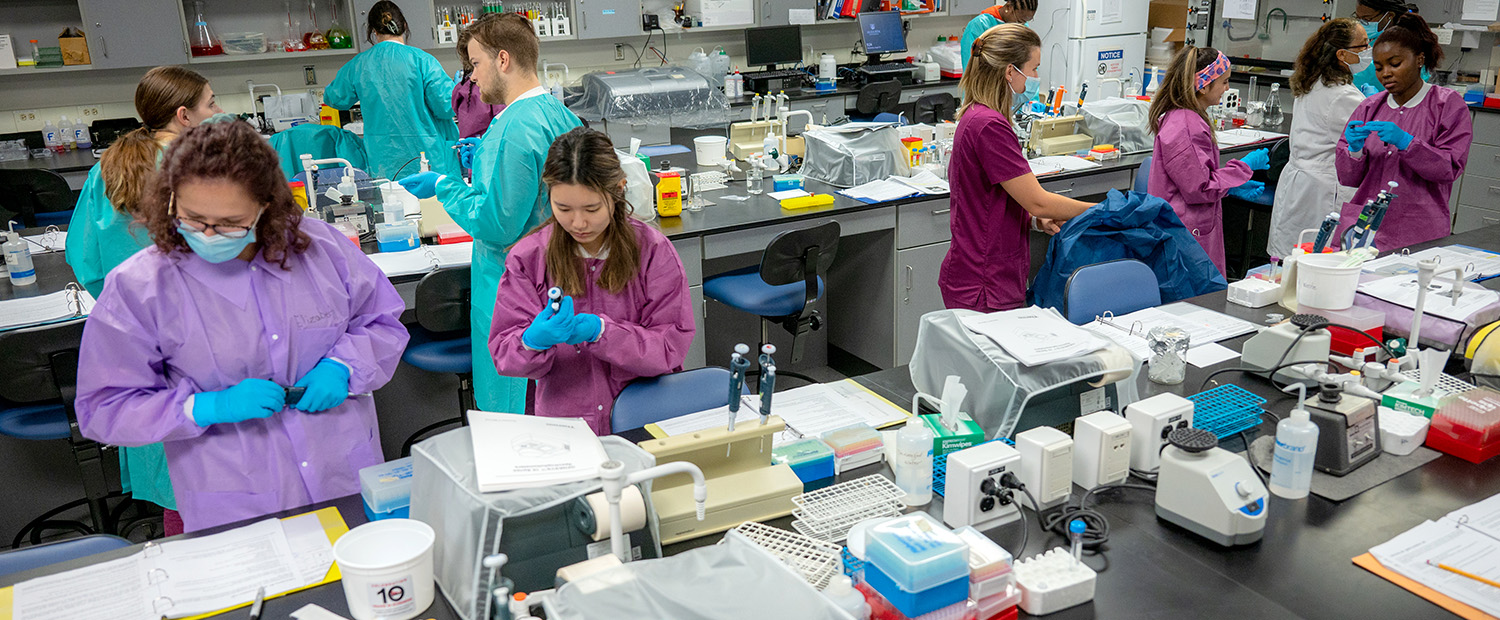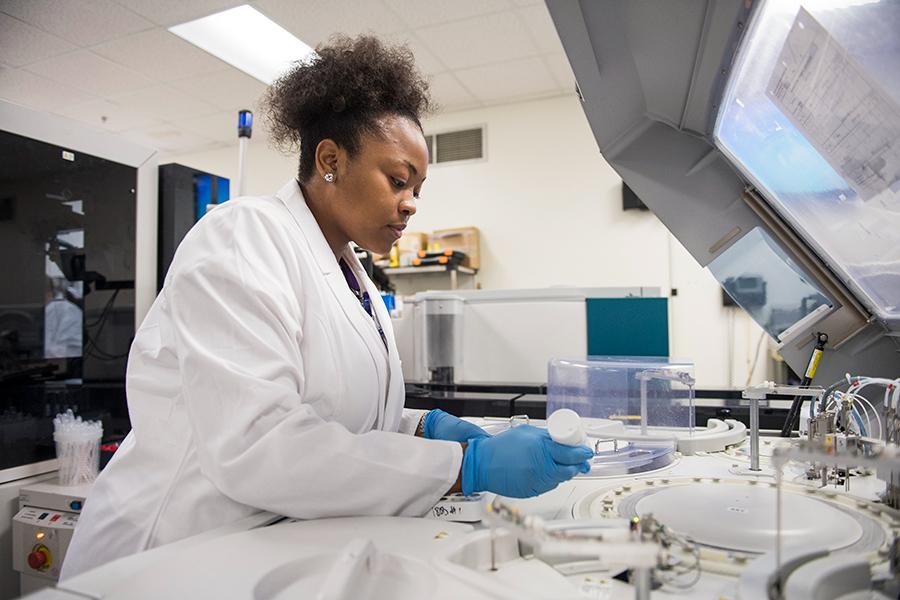
Clinical Laboratory Science
Clinical Laboratory Scientists, also known as medical laboratory scientists and medical technologists, are credentialed health professionals who are a vital part of the health care team.
Clinical laboratory scientists perform laboratory tests to diagnose and treat disease and maintain health. In hospital settings, they analyze blood, tissues, and body fluids to detect disease. They work with sophisticated computerized equipment such as automated chemistry and hematology analyzers, GLC-Mass spectrophotometers, and thermal cyclers for molecular testing. Clinical laboratory scientists develop and evaluate new procedures, maintain quality assurance, educate health care professionals, and manage the laboratory.
Licensure Disclosure Statement
The Clinical Laboratory Science Program has determined that the required classes and educational activities of this academic program will qualify a graduate of this program to take the national American Society of Clinical Pathology Board of Certification (ASCP-BOC) examination to obtain Certified Medical Laboratory Scientist (MLS) credentials and subsequently satisfies the educational requirements of all U. S. states and territories for the Certified MLS and/or state licensure.
Contact Us
Clinical Laboratory Science
Health Sciences Campus
EC-3423
Scott Wise
Role of a Clinical Laboratory Scientist
Perform laboratory tests used to diagnose and treat disease
Work in blood banking, chemistry, hematology, immunology, microbiology, molecular diagnostics and urinalysis
Assure that test results are accurate and reliable
Work with sophisticated computerized technology such as automated chemistry and hematology analyzers, GLC-Mass spectrophotometers and molecular testing such as PCR and DNA probes

Program Accreditation and Outcomes
The Clinical Laboratory Science (CLS) program at Augusta University is accredited through the National Accrediting Agency for Clinical Laboratory Science (NAACLS). The address for NAACLS is 5600 N. River Rd. Suite 720 Rosemont, IL 60018-5119. The phone number for NAACLS is (773) 714-8880. The program is currently accredited through October 31, 2030.
NAACLS requires accredited programs to openly communicate to the public the following outcomes measures:
| Rates | FY 2023 | FY 2024 | FY 2025 |
|---|---|---|---|
| Certification Pass Rate* | 85% | 69% | 75%**** |
| Graduation Placement Rate** | 100% | 100% | 100% |
| Graduation Rate*** | 100% | 100% | 100% |
*Defined as the percentage of those students passing exam (ASACP BOC or AMT) within one (1) year of graduation or continuing their education.
**Defined as the number of students who were employed within one (1) year post graduation.
***Defined as the number of students entering the second half of the program and went on to graduate.
****BS-CLS cohort (17 students, four semester curriculum) graduated in December 2024 have until December 2025 to sit for certification exam (one student who was off-track in program and graduated in May 2025 has until May 2026 to take exam). So far, 14 BS-CLS students have sat for the ASCP BOC exam. Seven passed on the first attempt and two passed on the second attempt. One student took the AMT and passed. The three remaining students have yet to take either exam. MHS-CLS Cohort (four students, five semester curriculum) graduated in May of 2025 and have until May of 2026 to pass the ASCP-BOC exam. So far, two MHS-CLS students have sat for the ASCP BOC exam. Both students passed the ASCP BOC on the first attempt. The two remaining students have not yet taken the certification exam.
For both cohorts for FY 2025, 12 out of 16 or 75% of students have passed either exam, so far.
Last Updated: 8/1/25
Job Outlook
Job opportunities for clinical laboratory scientists are excellent, with more openings than available job seekers. Employment is expected to grow at a faster than average rate. United States Department of Labor, Bureau of Labor Statistics, Occupational Outlook Handbook.